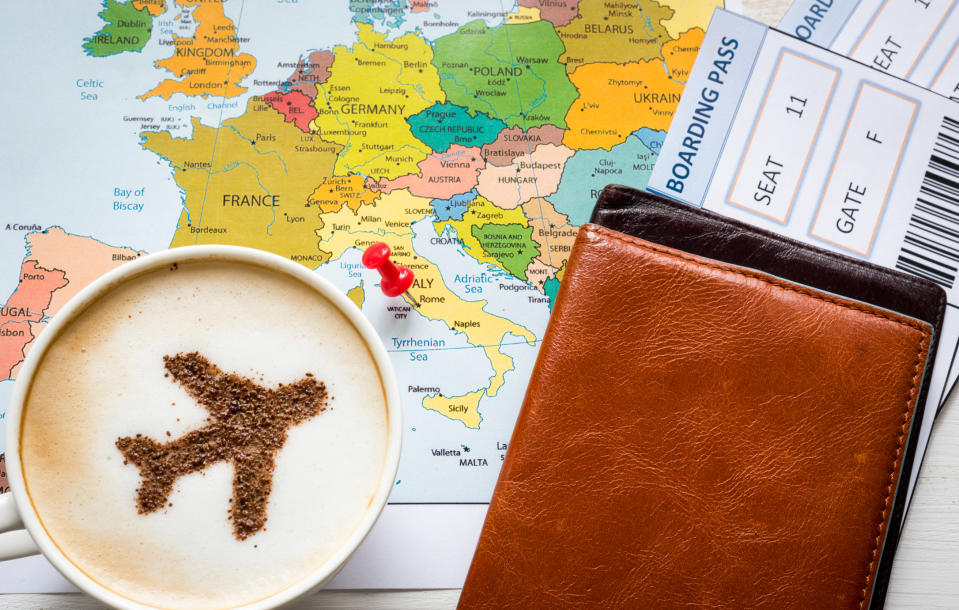3 Tips for Anyone Who Travels for Business
Work travel can range from enjoyable (a conference at a luxury resort) to brutal (multiple flights for a meeting). For many of us, however, it's unavoidable, and whether you enjoy it or not, it disrupts your natural rhythms.
A trip can be a mild inconvenience that only disrupts your schedule in a small way, or one that has you arrive back in the office well behind where you need to be. No matter how much, how long, or how often you travel for work, there are strategies that make it easier to make your trips go well without leaving you suffering when you get home.
You can't avoid the pain entirely -- just being away probably means some work will pile up. But you can do these three things to minimize the damage.

Traveling for work can make other parts of your job difficult. Image source: Getty Images.
1. Get ahead of things
If you know you're going to be on the road, try to build up as much extra work as you can before you leave. You'll want to plan this accordingly. If you're only gone a day or two, then maybe just put in a few extra hours. If you're out for more than that, make sure you schedule some extra night and weekend hours -- if not to get ahead, to at least minimize how far behind you fall.
2. Be realistic
A four-hour flight might mean four hours of work, or it could mean four hours crowded next to two members of the Jets offensive line. Some airlines are easier to work on than others, and even some plane styles make it easier to work than others do.
It's fine to plan to work on the plane, but set realistic goals. Planning on going over your meeting notes is one thing. Expecting to get hardcore work done may be unrealistic (especially if you need good internet access).
The same logic applies to how much regular work you expect to do while you're away. If you're traveling for one meeting and have lots of free time, you will be more productive than if you're at a conference or something more all-encompassing.
3. Plan for a bad day when you get back
Planes get delayed and time changes can wreak havoc on your ability to work. Know that if you're gone for more than a day or taking a flight that's longer than a couple of hours, there may be some recovery needed. Budget in a little extra sleep and/or try to make your first day back a light one. You may not need it, but travel isn't easy, and it can take its toll.
Plan for the worst
Travel goes wrong often enough that you should not expect perfection. Flying in an hour before your meeting is simply courting disaster. Try to build yourself a bit of a cushion, or at least know what your alternatives are should things go wrong.
It's great when every flight takes off on time, the plane is half empty, and there's no traffic as you leave the airport. That won't always happen, though, so try to be ready for things to go wrong.
More From The Motley Fool
The Motley Fool has a disclosure policy.

 Yahoo Finance
Yahoo Finance 